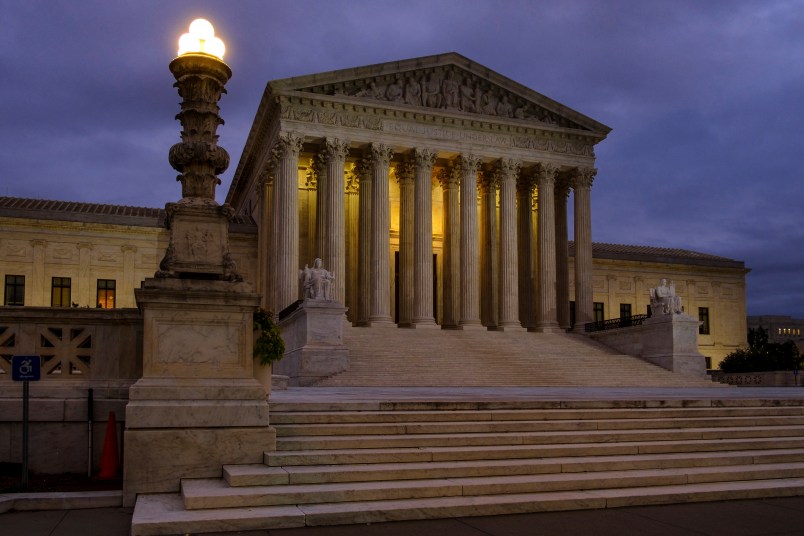Less than 17 hours before the Supreme Court is expected to decide the legality of the census citizenship question, the justices were still getting bombarded by filings related to the discovery of new evidence linked to the case.
New York Solicitor General Barbara Underwood asked the court on Wednesday evening not to resolve the issue of whether the question was added for discriminatory reasons. The Justice Department on Tuesday had requested that the court resolve to claim, so to head off additional litigation that could occur around it.
The claim that the administration had violated the equal protection clause was not in front of the Supreme Court as it considered the case this spring.
However, the discovery of the new evidence — files of a dead GOP consultant who played a role in adding the question — has made it a live issue in the census citizenship case in Maryland, which had not yet made it up to the Supreme Court. The trial judge in the Maryland lawsuit has re-opened the case to decide whether the new evidence shows a discriminatory intent — a claim for which, he previously found, there was not sufficient evidence.
Altogether it has created a procedural nightmare for the Supreme Court. Earlier this month, the ACLU — one of the challengers in the New York case — asked that the Supreme Court decision be delayed and the case be sent back to the trial judge in Manhattan to consider the new evidence in the consultant’s files.
Underwood said at the time she supported such a move, which the Justice Department, not surprisingly, opposed.
When it appeared possible that that judge in Maryland would re-open the case there to consider the evidence, the Justice Department suggested the justices preemptively resolve the equal protection claim. The Department made that request more explicit after the Maryland case was formally re-opened Tuesday. The Maryland challengers wrote to the Supreme Court late Tuesday night to say they opposed the Justice Department request. However, it is Underwood’s — and not the Maryland challengers’ — case in front of the justices, which could explain why she also felt the need to express opposition to any move to address the discriminatory motive issue.
“This Court should deny this extraordinary request,” Underwood wrote. “In this Court, the parties here did not present briefing or oral argument about the equal-protection claim, aside from a single conclusory paragraph in petitioners’ opening brief.”
“It makes even less sense for this Court to reach beyond the parties’ arguments here based on petitioners’ speculative concerns about a potentially adverse decision in a separate case not before this Court-particularly when any such decision will issue only after additional proceedings that have not yet taken place,” she later added.







This whole farrago has really put SCOTUS in a bind.
There is no good reason that the question raised needs to be on the 2020 Census. Once again, the “emergency” is an invention of the Trump administration to get its way, when the merits weight against what it wants. The consequences of rushing and putting the question on the census will remain for a decade. Take a little time and make a decent decision.
Of their own making.
Modern day Republicans NEVER make a decent decision. That is a pigment (sic) of the medias’ collective imaginations.
This entire episode is stretching the credibility of this SCOTUS.